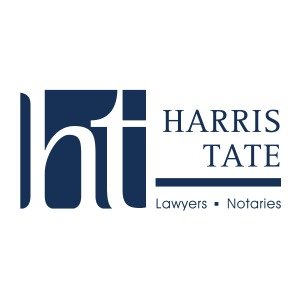About Us
At Simply Law we provide a wide range of legal services. We are particularly keen to provide a friendly and helpful service without using all the legal jargon.
From Greerton Law to Simply Law. We have changed our firm name for many reasons. Initially Greerton Law was set up to provide legal services to residents in and around Greerton. We have grown quickly and it became apparent that our services were being sought by clients outside of the area. The name Simply Law will take us through technology changes where more legal services will be offered on line in the future. Importantly, the name is representative of our desire to provide straight forward advice and pricing.
We like our clients being able to call to discuss matters without worrying that they won’t be able to understand the legal issues or that they may not be asking the right questions.
All of our staff have high skill sets in their niche areas of law but the difference is we are personable. You will be able to have a real discussion about your situation and the law.
We welcome any queries you may have and of course we offer a free 10 minute no obligation discussion so you can decide if you would like to use our services. Just contact us by email or phone.
About Simply Law
Founded in 2010
10 people in their team
Practice areas
Languages spoken
Free • Anonymous • Expert Lawyers
Need Personal Legal Help?
Connect with experienced lawyers in your area for personalized advice on your specific situation.
No obligation to hire. 100% free service.
Practice areas
Real Estate
Property Law
We can assist you with all property matters. Our team have developed significant expertise with commercial property and residential leasing, buying and selling, property structures, subdivisions, disputes and building agreements.
Selling or Purchasing a Property
We can assist with the buying and selling of your family home, investment property, orchard, farm or commercial property.
Purchasing
We can provide you with advice on the agreement prior to signing and explain to you how the process works. Once you have signed your agreement, leave it with us and we will work through the conditions with you.
We can help you complete your due diligence investigation and advise you on the title, LIM and other reports and any issues that arise.
If you are looking to buy a house and land package then your purchase process can be more complicated as you will have a build contract as well. We will review your builder's contract to ensure you fully understand your obligations and that it meets your needs.
Selling
We can assist you with the sale of your property by reviewing your agreement with your agent and any proposed sale agreement. It is helpful to discuss the agreement with you prior to signing so that you are aware of your obligations as vendor. If you are planning a private sale then we can assist you by drafting an agreement and assisting with the negotiations.
Buying a Unit Title Property
Buying a unit title is different to buying a freehold title property, a unit title is generally used for apartment titles or groups of properties on one piece of land where there are shared facilities ("common property"). The common property could simply be a drive way or could be as extensive as Gym facilities, lifts, and swimming pools.
A unit title is a social living arrangement. In purchasing a unit title you have to accept that there may be restrictions on what you can do to your unit and within the development. Other owners in the development are also subject to those rules and that should make for better living for all.
Before you buy a unit title property you need to ensure you have reviewed the Body Corporate rules and other documentation thoroughly and understand how the development works.
1. Pre-Contract Disclosure Statement
You will obtain a pre-contract disclosure statement prior to entering into an agreement to purchase a unit title property. That disclosure statement will contain useful information about the nature of the unit title and specific information about the unit title you are buying.
2. The Body Corporate
If you purchase a unit title property you will automatically become a member of the Body Corporate. The Body Corporate owns the common property and regulates the unit owners. The Body Corporate will have rules as to how you can use your unit and common property.
3. Levies
You will have to pay levies for the annual cost of the development, including insurance, repair and maintenance, management, leasehold costs if any and all matters relating to common property. You should find out what the levies will be before proceeding with your purchase and the levies should be included in the pre-contract disclosure statement.
It is important to note that you may also be levied for the cost of any future repairs or maintenance. Therefore, it is prudent to check with the Body Corporate regarding any expected costs for repairs and maintenance going forward and if any funds are held in reserve. There may be repair and maintenance costs for the development as a whole. The building is your investment and the state of it, including the Body Corporate governance, will affect the value of your unit.
What you should review before buying a unit title
- We will review the title and survey plan for the development to determine what common property is and what is your exclusive area, together with any other matters on the title that will affect your use of the unit.
- You should request and review the Body Corporate minutes for the previous two to three years and the Body Corporate’s financial reports and budgets.
- If the unit title is on leasehold land you will need to review the lease document.
- Always check the Body Corporate Rules to ensure your use will comply with them.
- Insurance, including any special conditions.
- Obtain a copy of the Body Corporate's long term maintenance plan to identify any potential large repair costs in the future.
- Review how the Body Corporate is managed. Are regular meetings held and is it managed in accordance with the Act? We can assist you with this.
- Is the Property Manager charging a reasonable fee or is it exorbitant?
- Does the property have an earthquake rating?
Cross-Lease Property
Under a cross-lease title arrangement each flat owner holds a share in the total property. All flat owners then lease back to themselves their respective flat. Accordingly, a cross-lease title comprises a title for the share in the total property, a leasehold title, and lease and a flats plan.
Your lease and the flats plan need to correspond and ensure that they provide you with exclusive use of your specific area and identify areas which are marked for common use.
Generally costs relating to common use areas are divided equally between the owners.
The biggest issue with cross-leases is ensuring that the flats plan reflects the outline of the actual flat on the ground. Any difference between the actual flat and the plan of the flat could amount to a defect in title. In particular, if the vendor has built an additional room or garage, the flats plan should be amended to reflect that.
You will not redevelop or change the existing profile without the consent of your cross-lease neighbours.
A cross-lease has specific terms for your use and you should discuss those with us before you agree to buy.
Property Development & Subdivision
We have extensive experience working with developers but also small property owners to complete their subdivisions and the on-selling of the lots. We liaise with your surveyor to ensure the project runs smoothly.
Banking & Finance
Business
Commercial Law
Our Commercial Law services include:
Business Law
We can assist you with the buying and selling of your business to ensure that your investment is protected. This includes reviewing the sale and purchase agreement, helping with your due diligence, and providing a checklist so nothing is missed. We will review any contracts that the business has, your business structure and your finance arrangements. We can assist you with your partnership agreement, your company set up and compliance, and your terms of trade. We have extensive experience with buying and selling small to medium size businesses.
Companies
We can assist you with the incorporation of a new company for your property investment or business needs and the ongoing obligations of that company.
Establishing a company is relatively easy. The difficulty with companies is the continuing administration and obligations. You need to follow proper process and never forget the company is a separate entity.
Upon incorporation you will be provided with a company key. That number is used to maintain company details by accessing the Companies Office website at www.companies.govt.nz . Keep that number and your access details safe.
The company's name must be clearly stated in every document or written communication. You can be penalised for not complying with this. Every company is required to have a registered office and an address for service. Both addresses must be in New Zealand and cannot be a postal centre or document exchange. If you change either of these addresses, you must notify the Companies Office. You are required to file an annual return with the Companies Office each year.
The company must keep a register of the following:
- the names and addresses of current directors. If new directors are appointed to the company, confirmation of their consent (in the required form) should be included as part of the Directors Register
- All directors certificates for significant decisions
- Directors interests in proposed transactions
- Name and address of all shareholders
A company must hold an annual meeting of its shareholders in addition to any other meeting at least once in each calendar year. This meeting must be held within 6 months after the balance date of the company and not later than 15 months after the previous annual meeting. The first annual meeting must be held within 18 months of registration.
The company must have a minute book in which the details of all annual meetings and resolutions and meetings of directors are to be kept. The minute book must be kept at the registered office of the company.
We recommend that you arrange for your company accountant to keep accounting records, explain the transactions of your company, enable the financial position of the company to be determined, enable the directors to ensure any balance sheets or other accounts comply with the Financial Reporting requirements.
When entering into a contract (which is not a deed) on behalf of the company the document must be executed by a director of the company. When entering into a contract, which is a deed, on behalf of the company the deed must be executed by two or more directors of the company, or if there is only one director, by that director, whose signature must be witnessed.






